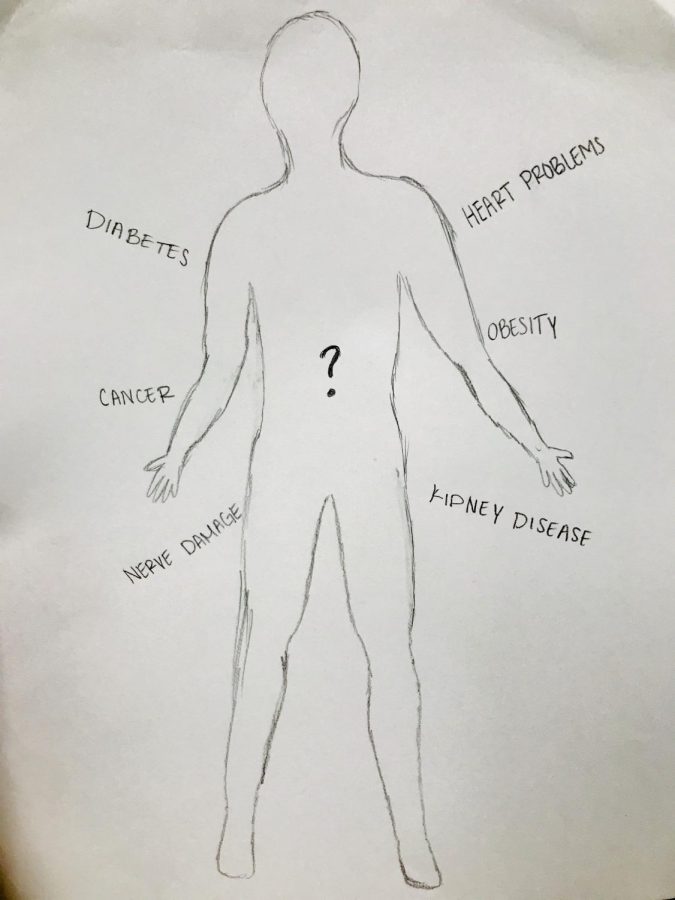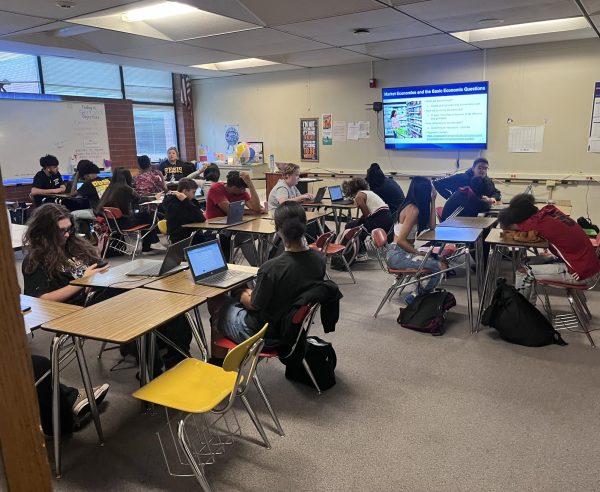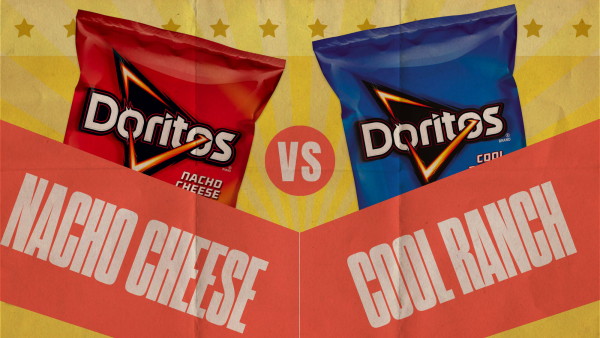Opinion: Stop Normalizing being Underweight and Overweight
Feature Photo by: Melanie Aguirre – Being slim and perfect is not what we should aim for but we should not be okay with body types that could come with so many health problems.
December 10, 2019
Inevitably, the first thing people notice when meeting someone new is their body. Of course people are more than their appearance, but we are normalizing body sizes that can lead to devastating health issues. I am not fat-shaming or judging people who are underweight, there is a difference between fat-shaming someone and being genuinely concerned about people’s health in the future.
I do believe that we were falling victim to the visual normalization theory: The theory is based on the notion that weight status is judged relative to visual body size norms. Because larger body sizes are now common, this has come with a change in idea of range of body sizes that are perceived as being ‘normal’ and increased the visual threshold for what constitutes being ‘overweight’.
Therefore, it is evident that we are getting used to seeing people who are overweight or underweight and are beginning to constitute these body sizes as “normal.” Society is now blurring the lines between what is normal for each individual’s body type and what is being over or underweight.
Senior Jennifer Lopez added, “A BMI over 30 which is considered obese correlates to people being at a higher risk for diseases and illnesses like high blood pressure, diabetes, and even cancers, however a BMI under 18 considers people as underweight and also leads to problems like malnutrition, and vitamin deficiencies.”
The big picture is whether we as a society are wrongly portraying what is “normal” by showing people who are overweight or underweight on billboards, music videos, and advertisements. These platforms form part of our everyday lives, and although the people being shown might not suffer from health problems, we are beginning to celebrate being over/underweight without regard to cholesterol, high blood pressure, and even difficulty breathing that has a high chance of accompanying obesity, and anemia, decreased immune function, and decreased fertility which are very common among underweight people.
I am not in any way saying that we should fit the picture-perfect mold of what society considers beautiful. We do not all look like Victoria’s Secret models because that is just unreasonable. What is displayed should be realistic. I know that people have stretch marks and body fat and other things that do not meet the societal construct of being “pretty,” but it is pushing the limit to glorify obesity as appropriate just like it is to display being very underweight as acceptable.
In June of this year, Miley Cyrus released a music video called “Mother’s daughter,” the music video included a clip of Angelina Duplisea, evidently overweight, lying nude on a couch.
While Duplisea has received serious backlash about her body, it is wrongful to assume that she has any health problems because of her weight. However, placing someone who is overweight in a position of complete nudity for a music video trying to celebrate inclusion is crossing the line. I understand that body weight is something that many people struggle with, but there is also a fine line between being accepting and convincing people that being overweight is okay.
On another note, Eugenia Cooney has been a YouTuber since 2011 and displays her severely underweight appearance on her channel. She stated in the past that she did not have an eating disorder and did not consider herself underweight, however, her videos show the opposite with her very frail body. With 2.4 million followers, it is very difficult not to believe that she has an influence on all of those people and it is very alarming to know she didn’t believe that she was underweight.
Junior Kathia Gonzalez said, “I don’t think normalizing obesity through undeniably overweight people is ideal. In an attempt to normalizing weights that are too thin or too heavy people are promoting serious health issues as being normal and unproblematic.”
I don’t intend for this to be an article about excluding people with larger or smaller bodies. People who live their lives real and raw are beautiful inside and out, no matter their size. But society has become so sensitive to many serious subjects like this one. As a society, we are feeding into the many health problems that stem from being over/underweight by continually praising it.
As a people, it is clear that we are open to diversity and attempting to be accepting of all people and body types. Despite these efforts, I do believe that there is a better way to display being realistic and not overweight. Models should stop being portrayed as picture perfect and as a whole, society needs to tone down their sensitivity and help people who are obese and on the verge of being unhealthy as well as those who are underweight and possibly living with an eating disorder.
As we endeavor the acceptance of real bodies, we should also explore the very real consequences that accompany being over/underweight. Instead of normalizing an issue, let’s highlight it and help create the change that is necessary so that everyone is healthy.













